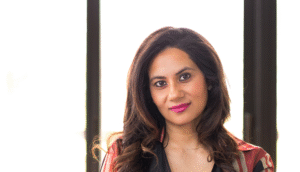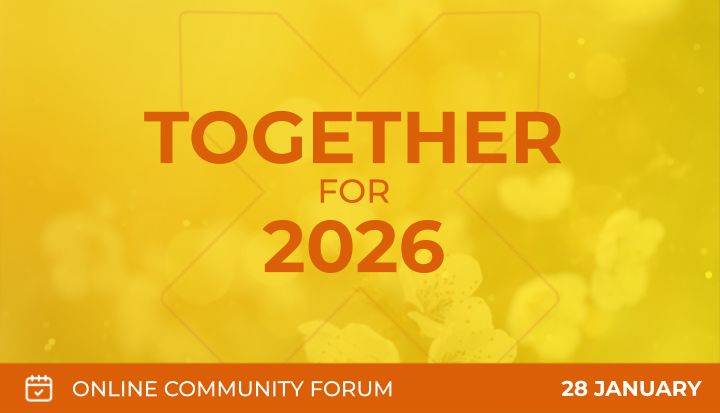The Business Fights Poverty community felt broadly positive about the future despite the challenging headwinds (from geopolitical uncertainty to pushback on ESG funds and everything in between). It is probably fair to say that most felt in agreement with the recent Accenture survey ,which found that 88% of CEOs see the business case for sustainability as stronger than ever, with 99% maintaining or increasing commitments. Albeit many probably also feel aligned with the recent ERM/Volans survey of over 844 sustainability professionals, which found that nine in ten experts agree that a shift in how environmental and social issues are approached is needed, with over half calling for a radical overhaul.

After analysing all the inputs from our sessions, five accelerators emerged and reflect a combination of ‘more and better’ as well as ‘new approaches’:
- Proving the Business (and management) Case (again and again)
Many contributors at the summit reminded us that we continually need to make the business case for integrating social impact and sustainability into core business operations. It starts with identifying the most material social and environmental issues that matter to the business, and then measuring the financial benefits of addressing them. See, for example, the Return on Sustainability Investment (ROSI) methodology, which includes nine value drivers related to sustainability, including operational efficiency. Contributor Daniel Seymour (formerly UN Women and UNStereotype Alliance) emphasised that executives need evidence that social impact drives performance. Drawing on UN Stereotype Alliance data, he pointed to a study that had analysed 392 brands across 58 countries, which showed that inclusive advertising works better than non-inclusive: including 3–5% higher short-term sales; 16% higher longer-term sales; 62% greater likelihood of being a consumer’s first choice; 15% higher customer loyalty. (Unstereotype Alliance; UN Women; Unilever) “The win–win bucket is bigger than people realise — but we need to show it with data,” he said. - Measuring What Matters
Angela Binati of Natura described how the company is embedding sustainability through integrated profit and loss accounting — measuring financial, social, natural, and human capital together. Natura currently creates $2.50 of positive impact for every $1 of revenue, with a goal of $4 by 2050. By quantifying impacts rigorously, she argued, companies can align their strategies and capital allocation with long-term value. “Our goal is to be regenerative across financial, natural, social and human capital” - Digital Inclusion as Growth Strategy
Vodafone’s Joe Griffin and Global Expert Network member Isabel Carboni pointed to digital access as a defining opportunity. For Griffin, from M-PESA in Kenya, which now carries a third of the country’s GDP, to digital skills training for older people in Europe, connectivity can transform lives. Carboni warned that women and underserved groups risk being left behind if companies fail to design inclusively. Together, their message was clear: closing the digital divide (through affordability, skills, and safety) is not just social good, but the next growth frontier. “A third of the world is still offline, and affordability and digital skills are the real barriers. Closing that divide is where we must focus” Joe Griffin, Head of Sustainability Strategy, Vodafone Foundation. - Alternative Financing for Resilience
Financing came through as a critical accelerator. Leaders pointed to the need for companies to explore multiple routes, from blended finance to alternative credit scoring, to unlock capital for sustainability initiatives and small enterprises, who many rely on in their supply chains. Barclays’ Unreasonable Impact programme and Standard Chartered’s SME financing pilots were cited as promising models. ABF Sugar underscored the importance of supporting farmers and workers directly, often in remote areas where businesses must step in with schools and clinics. As Wim De Groof Human Rights Lead at ABF Sugar said “As some voices fall behind, companies must rise up and use their business voice to represent those whose interests are bound with our own.” Natura, too, stressed the role of supply chain investment, valuing social biodiversity and human capital in the Amazon. Taken together, these examples show that financing the transition will mean looking beyond traditional capital markets to empower entrepreneurs, workers, and suppliers at every level. - Rethinking Governance Models
Finally, governance was seen as decisive for embedding sustainability. IKEA’s foundation-owned structure demonstrates how ownership can lock in long-term purpose. As Åsa Skogström Feldt, Managing Director, IKEA Social Entrepreneurship BV, said, “Our structure creates a lot of opportunity – it allows us to scale impact while staying true to values from 80 years ago. Our big dream is that all businesses become social businesses”. Community member Laura Hawksford of the Partnership Collective argued for tying executive pay to equity, climate, and nature outcomes, while others pointed to cooperative and employee-owned models that distribute value more fairly. These innovations signal that embedding impact is as much about who owns and governs business as it is about strategy.
Taken together, these accelerators illustrate how businesses can operationalise the Five Bridges to 2045. The report offers a framework, but as the Summit revealed, the milestones are already visible: better measurement, smarter finance, inclusive digital innovation, and governance that locks in purpose. The challenge now is scaling these solutions to turn today’s headwinds into momentum for 2045.
The case studies below illustrate how companies are implementing the Five Bridges:
BRIDGE 3: Governance and Incentives for Social and Environmental Impact. Natura case study on the company’s Integrated Profit and Loss (IP&L) to frame value beyond the financial.
BRIDGE 4: Connecting decision makers to those closest to the issues. Avon case study on how the company listens to the needs and insights of its 2 million self-employed sales representatives.
BRIDGE 5: Partnering to build an entrepreneurial ecosystem that drives innovation. Barclays and Unreasonable Group case study on their partnership to rapidly scale entrepreneurial ventures that positively impact society.
BRIDGE 5: Tackling Informal Employment Challenges in Africa. Standard Chartered Foundation case study on its Revolving Loan Fund to provide low-interest loans to low-income female entrepreneurs in Kenya’s informal sector.
We are grateful to all the following contributors who discussed the issues raised in the Five Bridges Report during the lunch panel at our Global Goals Summit:
Martín Burt, Founder and Executive Director, Fundación Paraguaya Åsa Skogström Feldt, Managing Director, IKEA Social Entrepreneurship BV Angela Pinhati, Chief Sustainability Officer, Natura Joe Griffin, Head of Sustainability Strategy, Vodafone Foundation, Wim De Groof, Human Rights Lead, ABF Sugar
And to the following Business Fights Poverty members who contributed during the Summit’s Community Clinics :
John Bee, Executive Board Member, AOAC Africa Section; Christian Pirzer, Managing Director, Endeva, Radha Rajkotia, Member, Business Fights Poverty Global Expert Network (GEN), Sanjay Banka, Executive Chairman, Banka BioLoo Limited and Banka Earth Foundation, Maya Middlemiss, Founder, Remote Work Europe, David Wofford, Senior Director, UN Foundation, Yaquta Fatehi, Program Manager, William Davidson Institute, University of Michigan, Kate Gibson, Senior Advisor & Board Member, Kate Gibson Consulting; Member, Business Fights Poverty GEN, Iyad Kallas, Member, Business Fights Poverty GEN, Daniel Seymour, Member, Business Fights Poverty GEN, Dr. Jacques Drolet, Government and Industry Advisor, IDRG/KAYAKAYO, Tanya Singh, Partnerships Associate, Good Business Lab, Martin Casey, Director, AdvoCasey Advisory, Maria-Jose Subiela, Member, Business Fights Poverty GEN, Isabelle Carboni, Member, Business Fights Poverty GEN, Austin Atsua Terngu, Member, Business Fights Poverty GEN, Laura Hawkesford, Co-Director, The Partnership Collective, Saurabh Naithani, Member, Business Fights Poverty GEN, Benon Mugarura, Member, Business Fights Poverty GEN.








